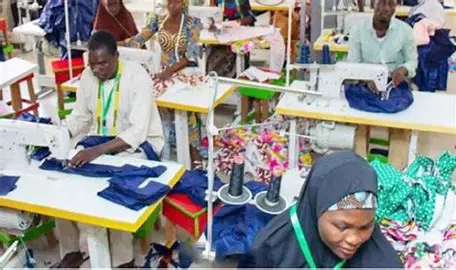BUSINESS

HOW SMALL BUSINESS OWNERS NAVIGATE NIGERIA’S RISING COST OF LIVING
As the cost of living continues to soar, small business owners in Nigeria are battling unprecedented financial challenges. With the rising prices of goods and services eating into their profits, many entrepreneurs are struggling to stay afloat—some have shut down, while others have resorted to side jobs just to keep their businesses running.
From Entrepreneur to Employee—A Necessary Shift
For Monisola Akanbi, a fruit seller, staying in business meant taking up an early morning job at Iyana Iba Fruit Market, where she earns ₦3,000 daily to reinvest in her struggling enterprise.
"Running a business in this country is no longer easy. People see traders and envy them, but they have no idea what we go through to survive," she lamented.
Initially a hairdresser, Monisola turned to fruit sales, but inflation made it nearly impossible to sustain. With fruit prices rising unpredictably, she took a temporary job at the market, selling until 10 a.m. before returning to her own business. Despite spending ₦1,000 on transport daily, she saves the rest to restock her supplies.
Thrift Contributions: A Lifeline for Small Businesses
For Favour Osagie, who sells food spices, survival meant turning to a thrift contribution scheme to access funds.
"The cost of rent and services keeps rising, and once prices go up in Nigeria, they rarely come down," she said.
Favour started her business with ₦700,000, but soon found it difficult to keep up with suppliers increasing prices by ₦100 or ₦200 per carton, while her profits barely added up to ₦50 per sale.
Nearly shutting down out of frustration, she was introduced to a contribution plan that allowed her to borrow money after saving ₦50,000 over two months. Unlike bank loans with high interest rates, this thrift scheme became her safety net, ensuring her business stayed afloat.
Sacrificing Time to Save a Business
Sharon Apata, a provision store owner, had to close her shop for eight months and take up work as a fashion stylist to rebuild her finances.
"I was drowning in debt. Customers owed me, and I couldn’t pay my suppliers. Prices of goods kept rising, and I was losing both profit and capital," she shared.
Desperate to recover, she turned to her tailoring skills, earning between ₦70,000 to ₦100,000 monthly, depending on her workload. The income allowed her to clear debts and restart her business.
"Banks won’t look at you twice if you don’t have collateral, and their interest rates are unbearable. My skills saved me," she added.
A Harsh Economic Climate
With the Central Bank of Nigeria (CBN) repeatedly hiking the Monetary Policy Rate (MPR) to 27.5%, borrowing from banks has become even more expensive. This leaves many small business owners with limited options, forcing them to rely on personal savings, informal lending schemes, or secondary jobs.
Despite the tough economic landscape, Nigerian entrepreneurs continue to demonstrate resilience,
"This represents a significant development in our ongoing coverage of current events."— Editorial Board









